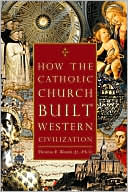Like many of us, I struggle sometimes when death takes friends and relatives. It is made all the harder when it seems that such a good and decent person has been taken so soon. In the last week a friend of ours died in a traffic accident on the way to church for choir rehearsal and then a few days later my son's den leader died from cancer leaving a wife and 3 young boys under the age of 9 behind. I came across this devotional and it helped me and my hope is that it might also help you through times such as these which will inevitably come. It still hurts of course, but the pain undergirded with hope- and thus becomes a lighter burden to bear.
One of the most compelling scenes in the Gospels involves a man whose words were never recorded. Lazarus is first introduced in the Gospel of John as one Jesus loves--and one who is sick. The illness had silenced Lazarus to the point where it is Mary and Martha who had to send word to Jesus: "Lord, the one you love is sick" (John 11:3). When Jesus heard the news of his friend's condition, he immediately replied: "This sickness will not end in death." A few days later, Lazarus was dead.There are times when I read this story and I long to say in response, "But it did end in death." Before the story of Lazarus was a story fully marked by the power of resurrection, it was first a story marred by the force of death. Lazarus still walked through the pain of his illness; he still faced the uncertainty of dying. Mary and Martha still grieved at the grave of their brother for four days. And Jesus himself wept.Even for those who look to the resurrection as their certain hope, death is still a jarring occurrence. The journey toward death was harsh and shocking to Lazarus, his family, and his friends. But it was not the final word. There is a voice that can be heard even through the last shriek of death.We don't know how Lazarus reacted to his own death and subsequent resurrection. The gospels do not offer us a single word from the mouth of the one who was raised. In fact, the man at whose grave Jesus wept is known only in the gospels as one who listened. Amidst a crowd drawn by sorrow to a graveside in Bethany, Jesus called out in a loud voice: "Lazarus, come forth!" And the dead man indeed came out, his hands and his feet wrapped with strips of linen, and a cloth around his face.There is something about suffering and despair that brings us to strain our ears for the voice of God. Where we have written God off as silent, where we have lived with the suspicion of a distant or demanding ruler, there is a compulsion within our pain that forces us to listen. There is an image of Christ who carried the same burden. And it is met with the promise of one who speaks: This sickness will not end in death.
Me again-You see, without eternity nothing like this can make any sense at all. Without eternity we are without hope and death has the final word. Through the resurrection of Christ, we have hope born of the knowledge that this is NOT the end and that reunion awaits us someday. In the meantime we worship a God who does not stand off, aloof, as we suffer, but one who is with us in our pain, stands with us as we suffer, and weeps with us.
The entire devotional can be found here.


No comments:
Post a Comment